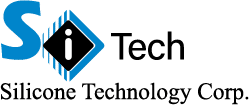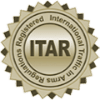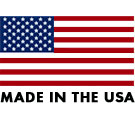
Understanding REACH Compliance and Its Importance in the Silicone Industry
In the world of manufacturing, particularly in sectors involving chemicals and materials, regulatory compliance is not just a legal obligation but a cornerstone of market trust and product safety. One of the most comprehensive regulations in this arena is the European Union’s Registration, Evaluation, Authorisation and Restriction of Chemicals (REACH) regulation. Here’s a closer look at what REACH compliance entails and why it’s especially critical in the silicone industry.
What is REACH Compliance?
REACH compliance involves adhering to a framework aimed at controlling the risks associated with chemical substances to human health and the environment. Enacted in 2007, the REACH regulation requires companies to identify and manage risks linked to the substances they manufacture and market in the EU. Compliance means registering chemical substances, providing safety data, and following restrictions on certain hazardous chemicals.
Key Components of REACH
Registration: Companies must provide detailed information on the properties, uses, and safe handling of chemical substances.
Evaluation: Authorities review the data for accuracy and to assess risks.
Authorisation: Some substances of very high concern (SVHC) require authorization to be used.
Restriction: There are strict rules limiting or banning the use of particular substances deemed too hazardous.
Why is REACH Compliance Important in the Silicone Industry?
1. Product Safety
Silicone is used extensively in products from medical devices to kitchenware, and even in personal care products. Ensuring that these products are free from harmful substances is crucial for consumer safety. Compliance with REACH ensures that silicone products are non-toxic and safe for their intended uses.
2. Environmental Protection
The manufacturing processes of silicone can involve various chemicals that might be hazardous if not handled properly. REACH compliance helps in minimizing environmental impact by controlling emissions and waste management practices that involve chemical substances.
3. Market Access
Compliance with REACH is not just about legal adherence; it’s also a market necessity. Products that are non-compliant cannot be legally sold within the EU, which is a significant market. For silicone manufacturers, maintaining REACH compliance is essential for continued access to this lucrative market.
4. Corporate Reputation
Being compliant enhances a company’s reputation as a responsible manufacturer. It demonstrates a commitment to health, safety, and environmental stewardship, which can strengthen brand loyalty among consumers and confidence among investors.
5. Innovation and Sustainability
Adhering to REACH can drive innovation, pushing companies to find safer and more sustainable alternatives to restricted substances. This pursuit not only aligns with global sustainability efforts but also with consumer trends favoring eco-friendly and safe products.
Challenges and Considerations
Despite its benefits, REACH compliance poses significant challenges, particularly for small and medium enterprises (SMEs) due to the resources required for the compliance processes. Furthermore, the dynamic nature of REACH regulations, with frequent updates and additions to the list of restricted substances, demands continuous vigilance and adaptability from businesses.
For companies in the silicone industry, REACH compliance is not merely about adhering to legal requirements—it is about ensuring product safety, protecting the environment, maintaining market access, and enhancing corporate reputation. As regulations evolve and consumer awareness increases, the role of compliance will only grow more central to successful business operations. By investing in comprehensive compliance strategies, silicone manufacturers can not only meet regulatory demands but also position themselves as leaders in a competitive, safety-conscious market.







